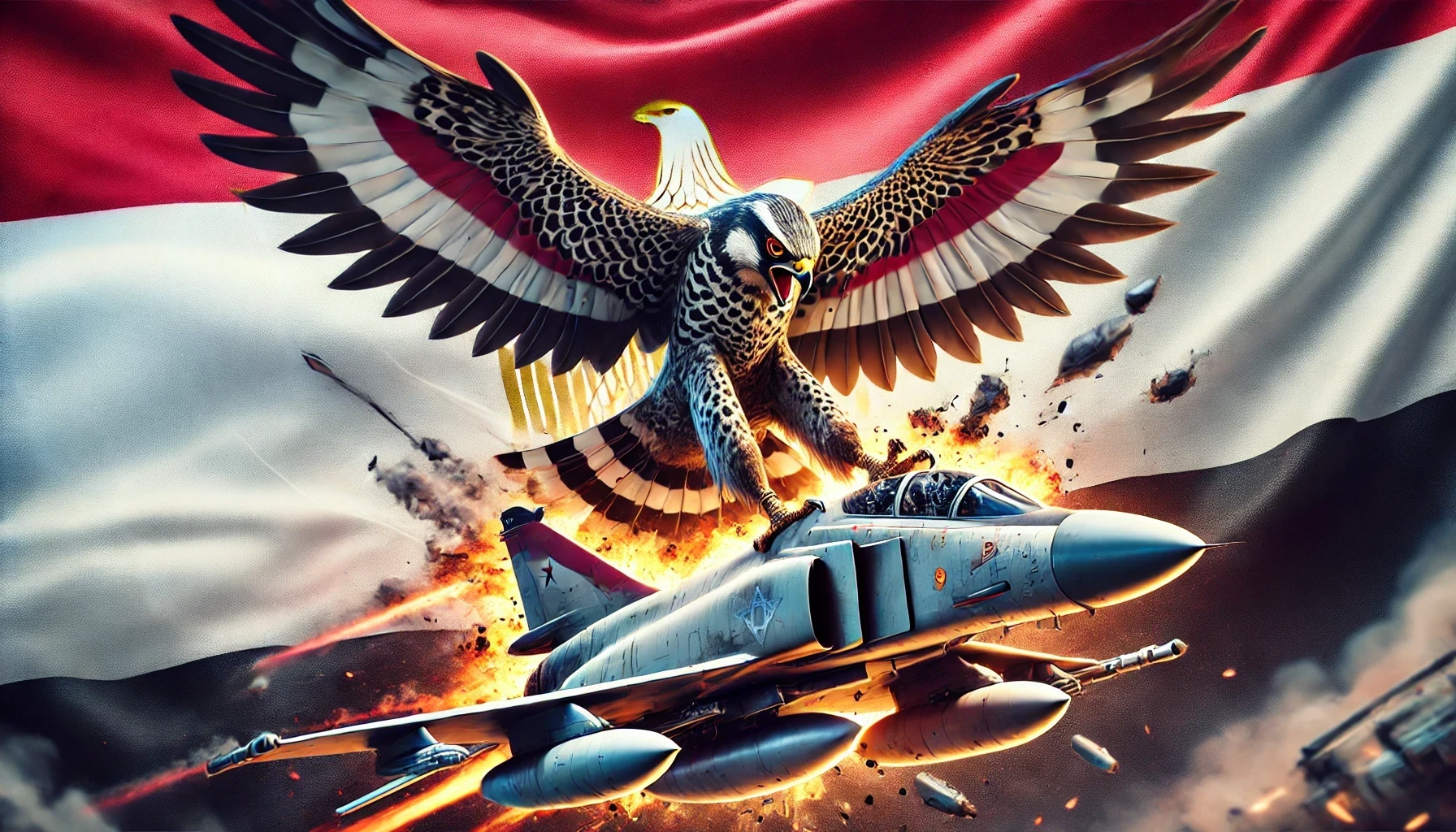“A Falcon’s Wrath” was written as a tribute to the Egyptian Air Force’s remarkable victory in the Mansoura Air Battle, which took place on October 14, 1973, during the Yom Kippur War (October War). This battle remains one of the largest air-to-air engagements in history. The song reflects the deep emotional journey of Egyptian pilots, who had experienced a devastating loss six years earlier during the Six-Day War of 1967, when their planes were destroyed on the ground, leaving them unable to fight. This moment was a source of profound frustration and shame for Egypt’s military.
The Drive for Vengeance:
The song captures the sense of determination that built over the years, as the Egyptian pilots carried the burden of that humiliating loss. Having watched their jets burn without a chance to defend their country, they were now filled with a burning desire for vengeance. After six years of rebuilding and preparation, they entered the skies in 1973 with one goal: to prove their strength and to reclaim their pride in battle. This time, they were ready to fight with everything they had, refusing to allow history to repeat itself.
The First Two Attempts and the Third Strike:
Before the decisive battle on October 14, Israel had made two previous attempts to destroy Egypt’s air power. These assaults were designed to repeat the devastating success Israel had achieved in 1967, when they wiped out Egypt’s air force before it could even take off. However, in both of these first two attempts, the Egyptian air defense proved too strong. Israel failed to gain air superiority, and the Egyptian pilots were no longer caught off guard as they had been years earlier.
On October 14, Israel launched its largest and final attempt—a massive strike involving more than 160 aircraft, including their advanced Phantoms. Confident in their numerical superiority, they believed this would be the blow that would crush Egypt’s air capabilities once and for all. Egypt, however, fielded a much smaller force of around 60 MiGs, but this time, the pilots were not only prepared—they were fueled by six years of pent-up rage and the will to avenge 1967.
The Mansoura Air Battle:
As the two forces clashed in the skies, the Egyptian pilots fought with unparalleled intensity. They pushed their MiGs beyond their limits, defying the expectations of the Russian engineers who had built the jets. The Israelis were taken aback by the Egyptians’ fearless determination. Some Israeli pilots reportedly called their Egyptian counterparts “crazy” for the way they fought, never backing down despite the overwhelming odds.
In just over 50 minutes of intense aerial combat, the Egyptian pilots managed to destroy a third of Israel’s attacking force. Out of the 7 planes Egypt lost, three weren’t even shot down—they simply ran out of fuel, as the pilots pushed their jets to the very last drop. One more was lost due to debris from a jet it had just destroyed. The Egyptian pilots had fought with such dedication that even in the face of certain defeat, they refused to yield.
The Legacy:
“A Falcon’s Wrath” is not only a tribute to the Egyptian victory at Mansoura but also a testament to the country’s unbreakable spirit. The battle is a day etched in history as a reminder to any potential invader of what Egypt is capable of when defending its skies. The lessons learned from that day strengthened Egypt’s resolve. Today, Egypt boasts the largest and most advanced air force in the region, a force that carries the same will and resolve as the pilots who fought in 1973—only now, they have the machinery to match.
The Song’s Themes:
- Pain and Vengeance: The memory of 1967 and the drive for revenge is a core theme.
- Dedication and Sacrifice: The Egyptian pilots’ willingness to push themselves and their planes to the limit shows their unyielding commitment.
- Victory and Legacy: The outro highlights how Egypt learned from its past and now commands the skies with unmatched power.
“A Falcon’s Wrath” stands as a powerful reminder of Egypt’s history, pride, and strength—showing that even against overwhelming odds, the Egyptian spirit cannot be broken.

